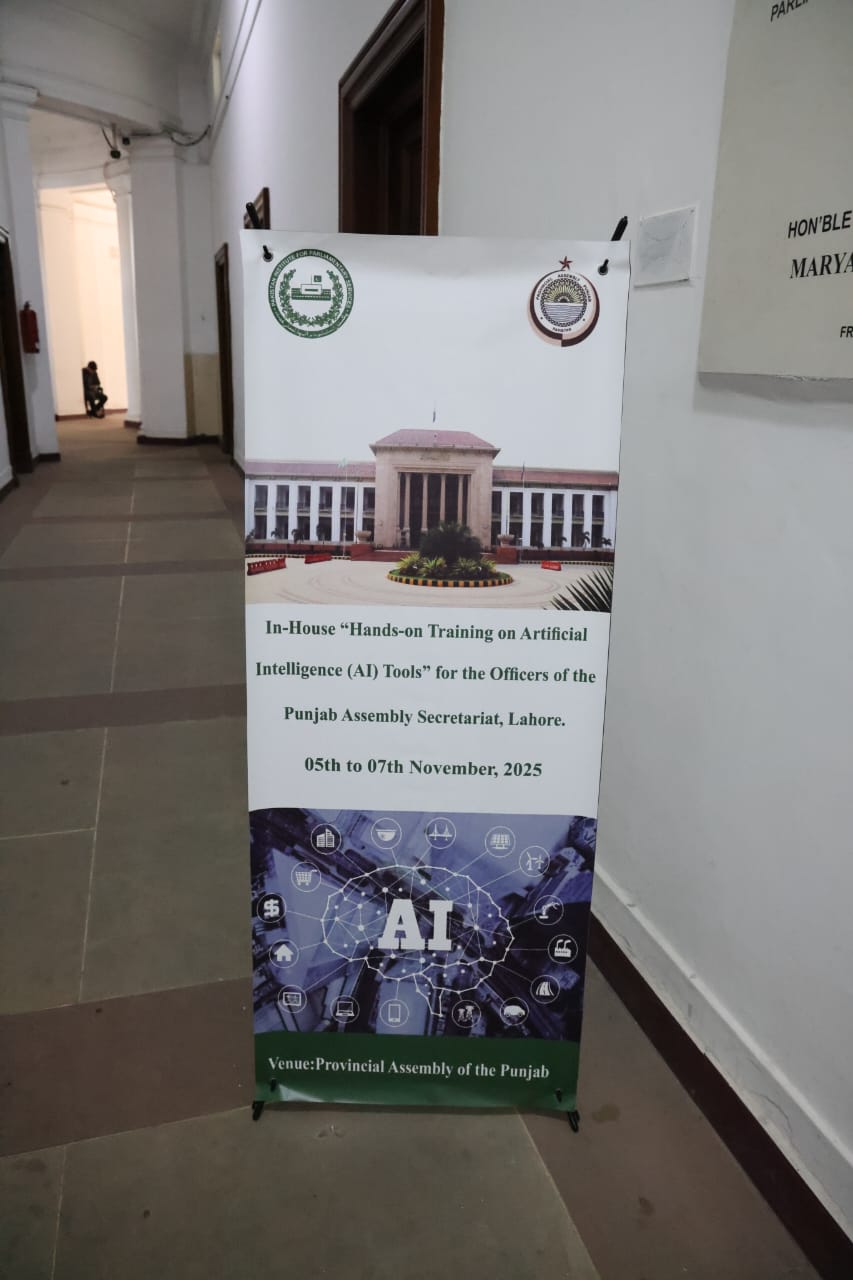
The Pakistan Institute for Parliamentary Services (PIPS) is organizing a three-day In-house training on Artificial Intelligence (AI) for the officers of the Punjab Assembly Secretariat. A total of 40 participants attended the training, which focuses on developing practical skills to apply AI tools for improved efficiency, innovation, and digital transformation in public administration.
The training aims to strengthen participants understanding of Artificial Intelligence and its integration in government administration, with emphasis on ChatGPT and other generative AI tools for drafting, research, communication, and committee coordination. The programme is designed to help officers streamline documentation, enhance workflow, and adopt emerging digital solutions in line with modern governance practices.
The inaugural session commenced with the recitation of the Holy Quran. Mr. Shahab Khattak, Assistant Director, moderated the session and extended a very warm welcome to all respected participants on behalf of the Executive Director, Pakistan Institute for Parliamentary Services (PIPS). He appreciated the participants’ commitment to embracing new knowledge and skills in the field of Artificial Intelligence to support the work of the Punjab Assembly Secretariat.
Mr. Asif Zamir, Director Information Technology, PIPS, started the technical discussion with thought-provoking questions about Artificial Intelligence (AI), Machine Learning (ML), Deep Learning (DL), and ChatGPT, creating an interactive learning atmosphere. He explained how ChatGPT works through prompts, tokens, and responses, discussed types of AI such as Narrow AI, Artificial General Intelligence (Generative AI), and Super AI, and introduced participants to Natural Language Processing (NLP) and Large Language Models (LLMs). The session also highlighted ethical considerations and responsible use of AI in government, along with the National AI Policy of Pakistan.
In the upcoming sessions, participants will explore AI-assisted drafting and policy research, committee coordination and oversight, as well as AI’s role in official communication and correspondence, public engagement and transparency, and integration and workflow optimization. The training will conclude with a capstone activity, where participants will present practical AI-driven administrative solutions developed during the programme.